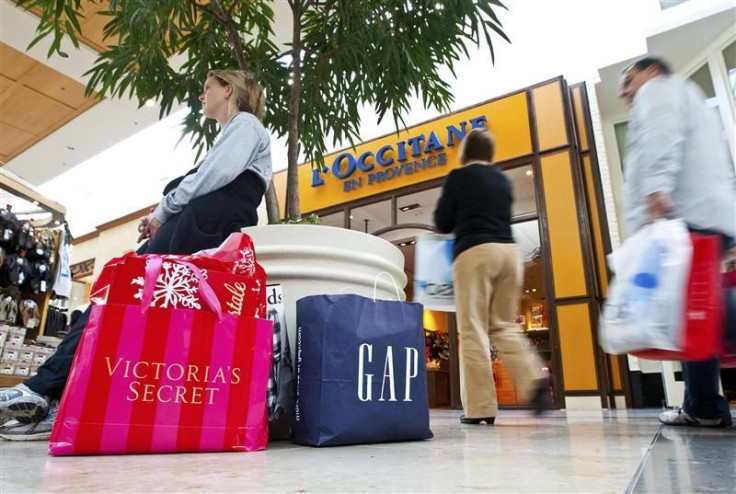2021 Biggest Retail Bankruptcies: A Complete List Of Bankrupt Retailers
While 2020 proved to be a record year for retail bankruptcies, it continued to spill over into 2021 as many companies couldn’t hang on as shoppers disappeared and sales dwindled.
The lingering pandemic drove consumers away from brick-and-mortar stores and forced COVID shutdowns in March 2020 made it difficult for some retailers to recoup lost revenue, making 2021 the year that they needed to restructure and file for Chapter 11 bankruptcy protection.
Here’s a look at the biggest retail bankruptcies that occurred in 2021:
Loves Furniture
At the start of 2021, Loves Furniture filed for bankruptcy protection, citing a range of shipping problems and a dispute with a logistics provider shortly after its debut in 2020 after taking up residency in some of Art Van’s liquated stores, according to court papers filed in January.
Loves Furniture CEO Mack Peters said in court papers that the retailer had “too much inventory and too little cash to operate its stores.”
Christopher & Banks
Just 14 days in 2021, women’s apparel retailer Christopher & Banks filed for Chapter 11 bankruptcy protection, saying at the time that it expected to close a significant portion, if not all, of its brick-and-mortar stores.
In a statement, Keri Jones, Christopher & Banks president and CEO, said, “Despite the tremendous advancements we have made in executing our strategic plan, due to the financial distress resulting from the pandemic and its ongoing impact, we elected to initiate this process and pursue a potential sale of the business in whole or in part to position the Company for the future.”
At the time, Christopher & Banks had 449 stores in 44 states. Liquidation sales began immediately at the locations.
L'Occitane
At the end of January, beauty retailer L'Occitane announced that its U.S. arm was filing for Chapter 11 and would optimize its store portfolio.
The company cited the “COVID-related challenges” of the past year as well as “high store rent obligations that are no longer tenable.”
L'Occitane operated 166 boutiques in the U.S. and had immediate plans to close 23 underperforming locations, Retail Dive reported.
Belk
Late in February, department store retailer Belk filed for bankruptcy, emerging from Chapter 11 days later.
The 130-year-old company had restructured with over $200 million of new capital, reducing its debt by $450 million and extending maturities on all term loans to July 2025.
Belk said the cash infusion and debt reduction increased its liquidity, allowing it to enhance its omnichannel capabilities and expand merchandise offerings to new categories that included home, wellness, and outdoor while strengthening its $1 billion and growing e-commerce segment.
At the time that Belk filed for Chapter 11, it had $1.9 billion in debt and had seen its sales fall 32% between March and December 2020, Retail Dive reported.
The retailer has 300 stores in 16 Southeastern states.
Paper Source
Card and gift retailer Paper Source filed for Chapter 11 bankruptcy protection in early March. The company said it had plans to sell itself and close at least 11 of its 158 stores, Retail Dive reported.
Paper Source, which purchased liquidated Papyrus in early 2020, adding 30 stores to its portfolio, found itself in a similar fate, as the COVID pandemic pinched its sales. The retailer’s sales fell from $153.2 million in 2019 to $104 million in 2020, according to Retail Dive.
Compounded by high rent leases, missing holiday sales, and never being able to realize the benefits of its Papyrus stores, the toll was too much for highly leveraged Paper Source, causing it to succumb to bankruptcy.
Paper Source was acquired by the owner of Barnes & Noble, Elliott Investment Management, in May. At the time of its bankruptcy, it had 158 stores and $100 million in debt with leases that cost $36 million annually, NBC News reported.
Alex and Ani
Jewelry retailer Alex and Ani filed for Chapter 11 restructuring in June as it looked for a buyer. Prior to filing for bankruptcy, the company reduced its retail footprint, which stands at about 74 stores. It was also ladened with debt at $127.4 million and saw its revenue fall 40% in 2020, Retail Dive said.
Alex and Ani's Chief Restructuring Officer Robert Trabucco said in a statement, “In 2020, COVID-19 forced the company to pause its key strategic growth initiatives, temporarily close stores, and scale back its operations in light of reduced in-store customer demand.”

© Copyright IBTimes 2025. All rights reserved.





















